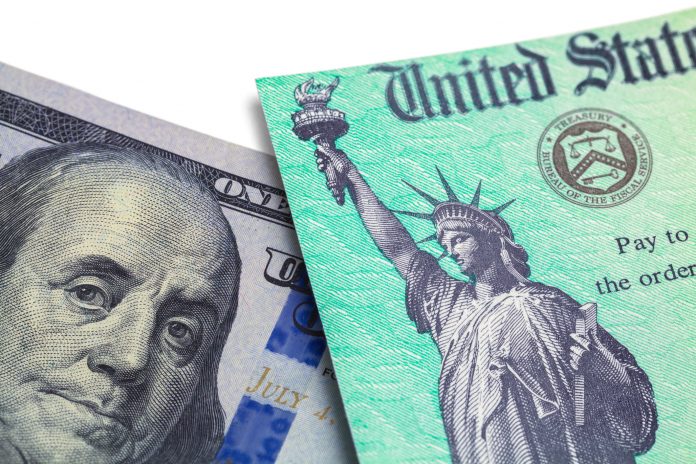Minnesota Gov. Tim Walz announced this week that he would push for substantial tax hikes as detailed in his 2021-2022 budget proposal. Coined “Minnesota’s COVID-19 Recovery Budget,” the comprehensive budget package would cost $52.4 billion over two years and increase spending by $1.3 billion. Furthermore, the budget would levy a 15 percent increase on the business tax rate, a 10 percent increase on the top income tax bracket, and a vaping and cigarette tax hike.
Altogether, this amounts to a total of $1.6 billion in new taxes. If this budget is passed, Minnesota would have the second highest business tax and third highest income tax rates in the nation.
More specifically, Gov. Walz will propose a new fifth tier tax bracket. This would be for the top 0.7 percent of earners. This would be for married couples filing jointly earning more than $1 million or individuals earning more than $500,000. While these “wealth taxes” have agreeable taglines and are popular with some residents and lawmakers, they inherently are accompanied with significant negative economic consequences. Minnesota will be no different.
Higher taxes motivate wealthy taxpayers to move to other states with more favorable tax codes, which means these wealthy taxpayers transport their income, capital, and tax revenues with them. The always promising projected revenue from so-called millionaire’s taxes have fallen short in other states where they have been imposed. Relying on an alterable tax with a small base is historically unreliable and can lead to large budget deficits. In many cases, states with broader and flatter tax systems generate more revenue in a consistent and predictable manner.
Gov. Walz and the Minnesota Legislature would do well to attempt to incentivize Americans to move to Minnesota, not pushing Minnesotans out. Many states with excessive tax burdens are seeing mass exoduses that are only increasing due to the fallout surrounding the COVID-19 pandemic and accompanying lockdown orders from mostly Democratic leaders. According to the U.S. Census Bureau, net domestic out-migration from 2010 through 2019 saw 1.4 million leaving New York; 912,000 leaving California; and 865,900 leaving Illinois.
Gov. Walz has also proposed an additional 1.5 percent on capital gains and dividend income between $500,00 and $1 million as well as an additional 4 percent tax on income over $1 million. According to the Department of Revenue, this would affect more than 7,000 households who would end up owing an average of $30,000 per year.
Gov. Walz has also proposed increasing the corporate franchise tax rate on corporations classified as “C corporations” to 11.25 percent. This would be a substantial rise from the current 9.8 percent rate.
Personal income and corporate tax hikes are generally considered to be the most destructive tax hikes because they disincentivize production, innovation, and investment. Recent studies show states with no income tax or with lower income taxes perform better economically while facilitating population growth and in-state job growth. As aforementioned, high income taxes deter economic development by discouraging higher-income-earners and new capital from moving into a state, or in this case, pushing high-earning Minnesotans out. A study by the Americans for Tax Reform Foundation found, “Each positive 1 percentage point tax burden differential between states decreases the ratio of income migration into the high-tax state by 6.78 percent in a given year.”
Furthermore, a retroactive tax on previously taxed foreign income that is brought back into the country has been proposed. According to the proposal, this could go as far back as 2016.
Finally, Gov. Walz proposes adding $1 per pack to the state’s existing $3.04 per pack tax on cigarettes paired with a series of tax hikes to be added to vaping products. In general, cigarette taxes are notoriously unreliable revenue sources, which disproportionally will affect lower-income Minnesotans the hardest. Often, tobacco tax increases result in long-term revenue shortfalls.
From 2001 to 2011, “revenue projections were met in only 29 of 101 cases where cigarette/tobacco taxes were increased,” according to the National Taxpayer Union Foundation. Moreover, a decline in cigarette consumption caused tobacco tax revenue “to drop by an average of about 1 percent across all states from 2008 to 2016,” Pew Charitable Trusts notes.
Furthermore, lower-income Americans tend to spend a greater share of their disposable income on cigarettes, which means they are disproportionately impacted by these tax increases. A Cato Journal article notes from 2010 to 2011, “smokers earning less than $30,000 per year spent 14.2 percent of their household income on cigarettes, compared to 4.3 percent for smokers earning between $30,000 and $59,999 and 2 percent for smokers earning more than $60,000.
States with high tax rates grow more slowly than states with lower taxes, after considering other control factors. A ranking of all states by their overall tax burden ultimately shows that real personal income grows more on average in the states with the lowest state and local taxes as a percent of income.
Keeping all of this in mind, it would behoove the Minnesota legislature to carefully consider all of the economic fallout that would follow the passing of this tax-heavy budget proposal. Following the coronavirus pandemic, tax hikes are not a viable economic solution, particularly unreliable taxes such increased income taxes and cigarette taxes. All taxes should be applied to a broad base and maintained at a low and economically competitive rate if Minnesota wants to keep residents in the Gopher State.











